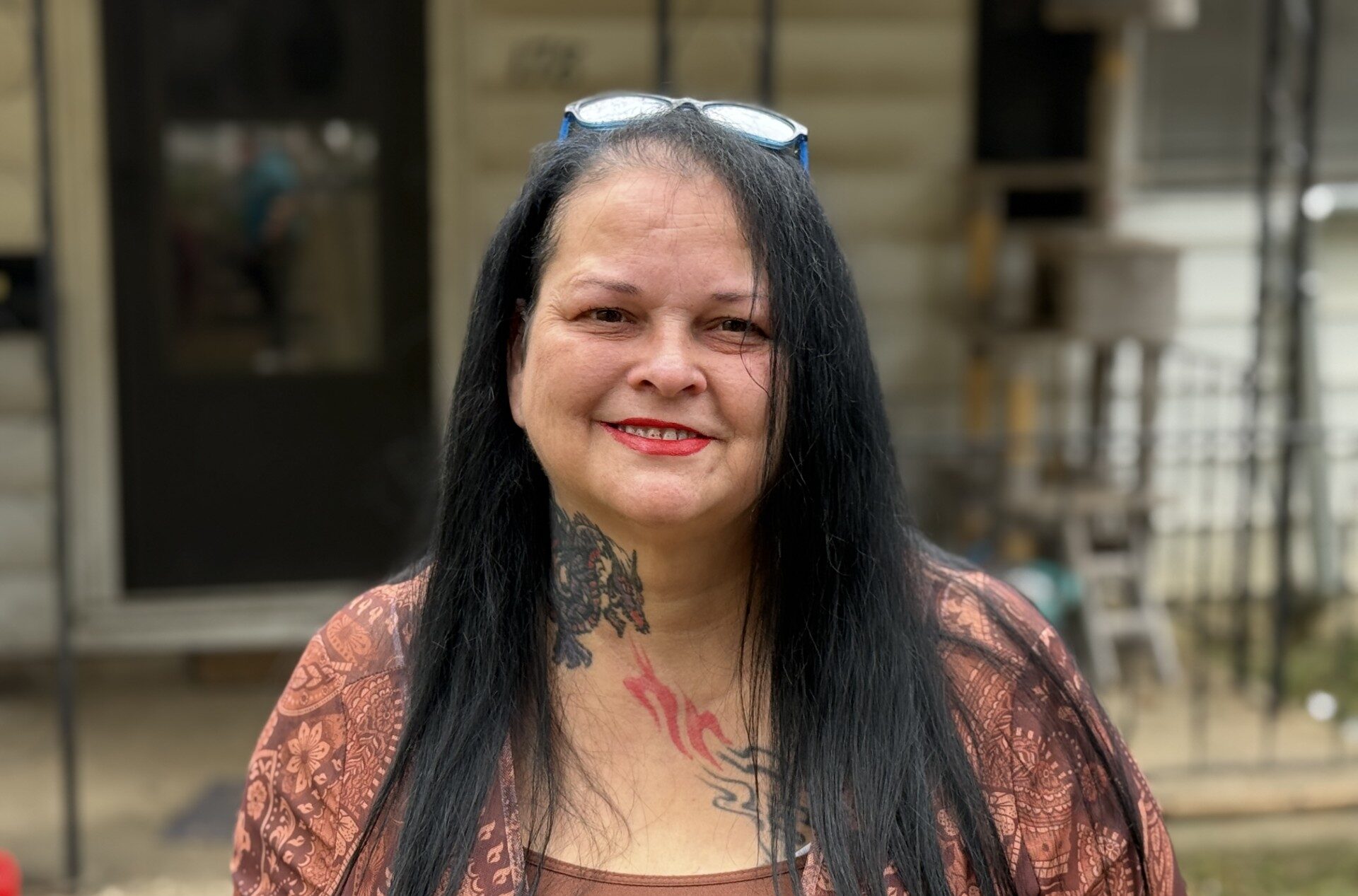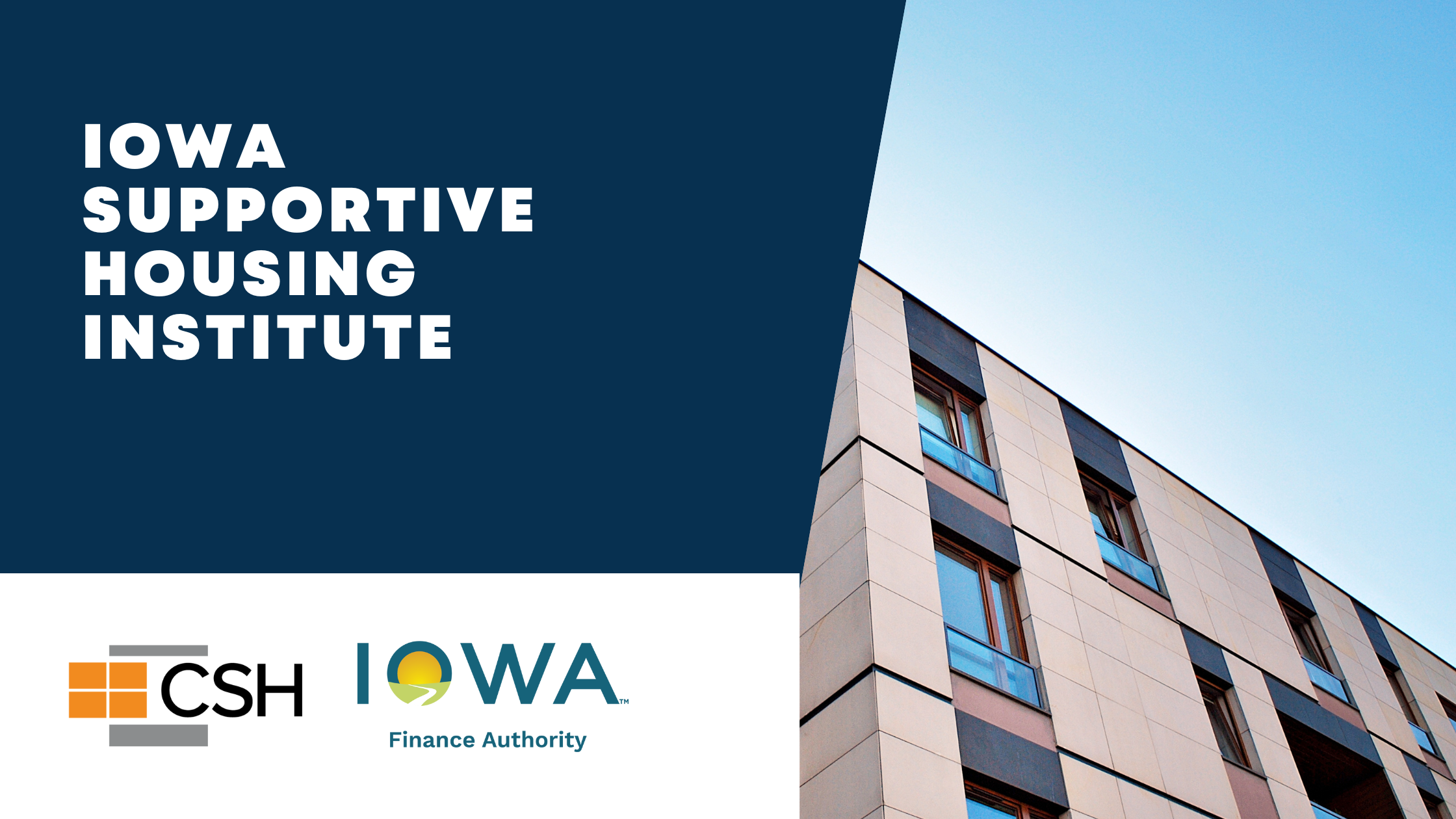10 sites across the country awarded grants to implement, adapt, and evaluate interventions addressing HIV and unstable housing in the U.S. for three priority populations.
Program Contacts:
Allyson Baughman PhD, MPH
Boston University
[email protected]
Massah Massaquoi, MPH
Corporation for Supportive Housing
[email protected]
Media Contact:
Garrett Lloyd
Corporation for Supportive Housing
[email protected]
For Immediate Release
May 7, 2024 | New York – The Center for Innovation in Social Work and Health (CISWH) at the Boston University School of Social Work (BUSSW) and CSH (Corporation for Supportive Housing) are leading a new national initiative to implement, adapt, and evaluate housing interventions for three priority populations of people with HIV. Through a four-year cooperative agreement with the Health Resources and Services Administration’s (HRSA) HIV/AIDS Bureau, CISWH in partnership with JSI Research & Training Institute, Inc. and University of Massachusetts Lowell, serve as the Evaluation Provider, while CSH in partnership with Collaborative Solutions serve as the Implementation and Technical Assistance Provider to 10 Ryan White HIV/AIDS Program sites. The project will address the intersectionality among housing status, identification with one of the three priority populations, and HIV-related health outcomes. The project is funded through HRSA’s Ryan White HIV/AIDS Program Part F Special Projects of National Significance (SPNS) Program.
“We know people with HIV experiencing homelessness and housing instability continue to disproportionately face challenges in accessing care and achieving improved health outcomes,” said Allyson Baughman, PhD, MPH, and principal investigator at BUSSW. “This innovative initiative represents opportunities to integrate HIV care and behavioral health with housing interventions to improve health outcomes among priority populations of people with HIV.”
In 2018, approximately 9.5 percent of people with HIV in the U.S. experienced homelessness compared to less than one percent of all Americans. Housing is a social determinant of health that has a substantial impact on HIV prevention and care outcomes. The experiences of homelessness and housing instability are associated with lower rates of retention in care, adherence to antiretroviral treatment (ART), and sustained viral suppression. The Supporting Replication (SURE) of Housing Interventions in the Ryan White HIV/AIDS Program — also known as the SURE Housing Initiative — seeks to strengthen the evidence base for housing interventions and psychosocial services for the following three priority populations of people with HIV, who often have the highest HIV-related disparities:
1) People who identify as lesbian, gay, bisexual, transgender, and queer or questioning (LGBTQ+).
2) Youth and young adults (aged 18-24 years).
3) People who have been involved with the legal system (defined as any person who is engaged at any point along the continuum of the criminal justice system as a defendant including arrest, incarceration, and community supervision).
The SURE Housing Initiative aligns with goal three in the National HIV/AIDS Strategy: 2022–2025 which is:“”3.4.6 Develop new and scale up effective, evidence-based or evidence-informed interventions that address intersecting factors of HIV, homelessness or housing instability, mental health and violence, substance use, and gender especially among cis- and transgender women and gay and bisexual men.”
“In addition to living with HIV, people from sexual and gender minority populations, young adults, and people involved with the legal system face significant barriers to obtaining housing like social isolation, stigma, and lack of access to quality care,” said Massah Massaquoi, MPH, senior program manager at CSH. “We are honored to provide technical assistance, training, and coaching opportunities to the funded sites, drawing upon our expertise deeply rooted in evidenced-based approaches. Our commitment is to guide and support these sites, facilitating connections between affordable housing and HIV care services with a foundation grounded in fairness and quality that help people thrive.”
Through the SURE Housing Initiative, funded organizations will replicate the evidence-based rapid re-housing intervention in the Ryan White HIV/AIDS Program to decrease health and housing disparities. This intervention was developed to help people quickly exit homelessness and return to stable, permanent housing. By addressing housing and behavioral health needs and supporting clients with their HIV care, the initiative seeks to improve health outcomes along the HIV care continuum, including linkage, engagement, and retention in care, as well as viral suppression.
The SURE Housing Initiative funds the following 10 organizations across the U.S.:
- AIDS Foundation Chicago, Chicago, Ill.
- AIDS Services of Dallas, Dallas, Texas
- Big Bend Cares, Tallahassee, Fla.
- Care Resource Community Health Centers, Miami, Fla.
- DAP Health, Palm Springs, Ca.
- Doorways, St. Louis, Mo.
- Eastern Oregon Center for Independent Living, Ontario, Ore.
- Gay Men’s Health Crisis (GMHC), New York, N.Y.
- Orange County Government and Zebra Youth, Orlando, Fla.
- The Open Door, Pittsburgh, Pa.
To learn more about this project, visit https://targethiv.org/SUREHousing.
###
About the Center for Innovation in Social Work and Health at Boston University School of Social Work
The Boston University team includes researchers from the Center for Innovation in Social Work and Health (CISWH) and the School of Public Health. CISWH is dedicated to expanding the impact of social work in health care and public health in order to improve the health and well-being of vulnerable populations nationally and globally. The Center seeks to improve outcomes, patient experience, and population health; reduce costs; and promote health and social justice. CISWH promotes social work leadership in health through transdisciplinary, cross-sector collaboration with public health, medicine, health economics, technology, and other relevant disciplines. CISWH has an over 20-year history as a research, policy, and training center on health services and systems of care for people with disabilities and chronic illnesses, including people with HIV. Learn more at www.ciswh.org.
SPNS Funding Statement
This project is supported by the Health Resources and Services Administration (HRSA) of the U.S. Department of Health and Human Services (HHS) as part of an award totaling $17,199,999 with no percentage financed with non-governmental sources. The contents are those of the author(s) and do not necessarily represent the official views of, nor an endorsement, by HRSA, HHS, or the U.S. Government. For more information, please visit HRSA.gov. Visit TargetHIV.org/SUREHousing for more information.




